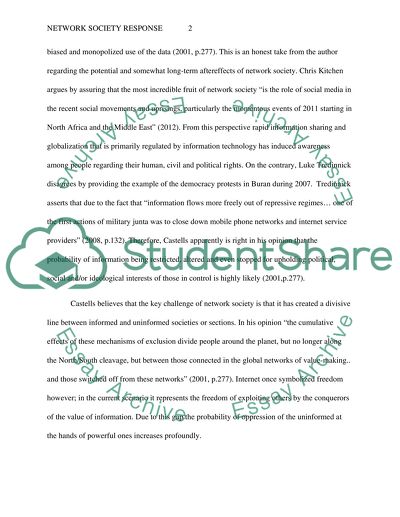Cite this document
(“Manuel Castells perspectives on the challenges of the network society Essay”, n.d.)
Retrieved from https://studentshare.org/journalism-communication/1631315-manuel-castells-perspectives-on-the-challenges-of-the-network-society
Retrieved from https://studentshare.org/journalism-communication/1631315-manuel-castells-perspectives-on-the-challenges-of-the-network-society
(Manuel Castells Perspectives on the Challenges of the Network Society Essay)
https://studentshare.org/journalism-communication/1631315-manuel-castells-perspectives-on-the-challenges-of-the-network-society.
https://studentshare.org/journalism-communication/1631315-manuel-castells-perspectives-on-the-challenges-of-the-network-society.
“Manuel Castells Perspectives on the Challenges of the Network Society Essay”, n.d. https://studentshare.org/journalism-communication/1631315-manuel-castells-perspectives-on-the-challenges-of-the-network-society.


